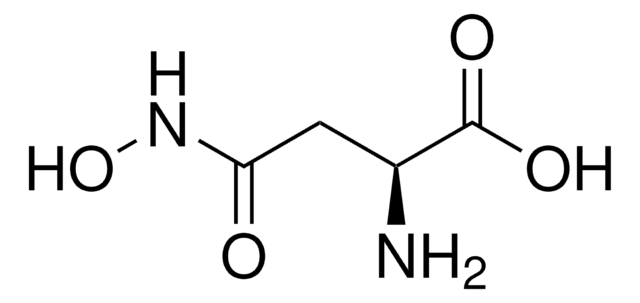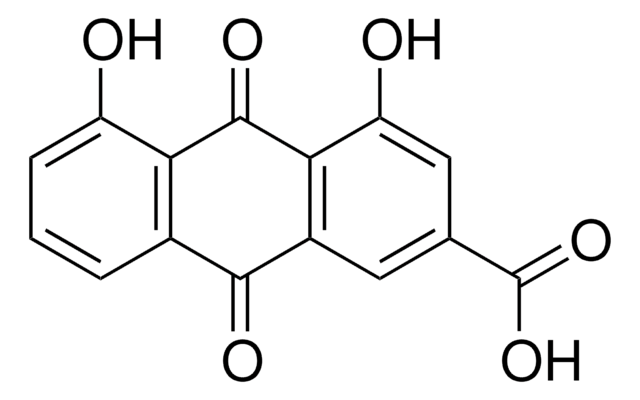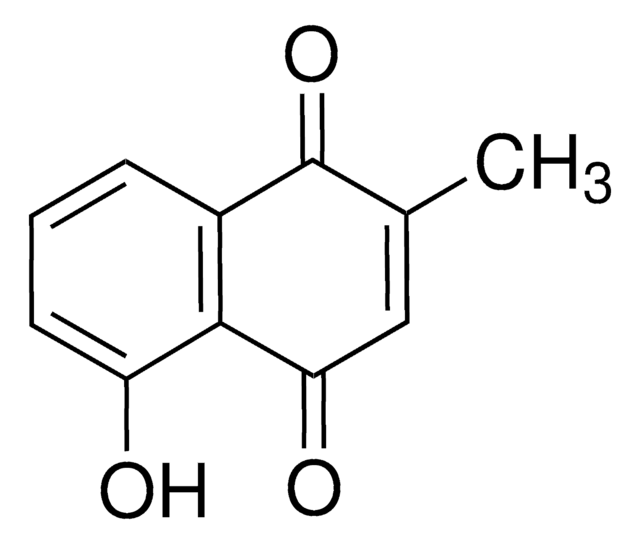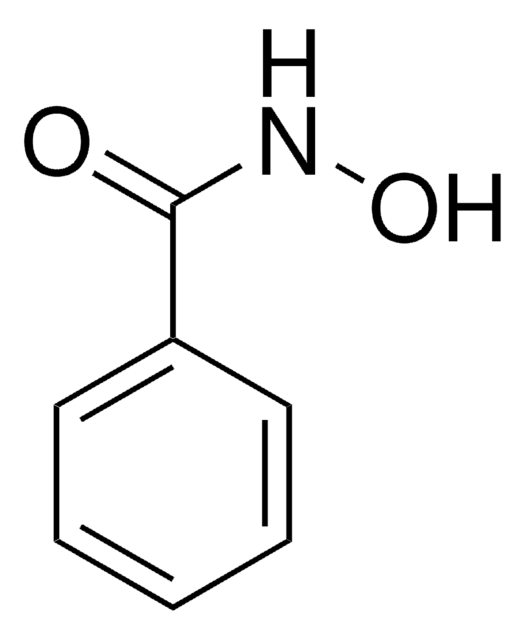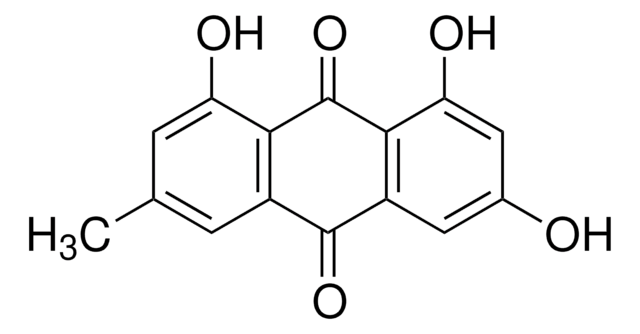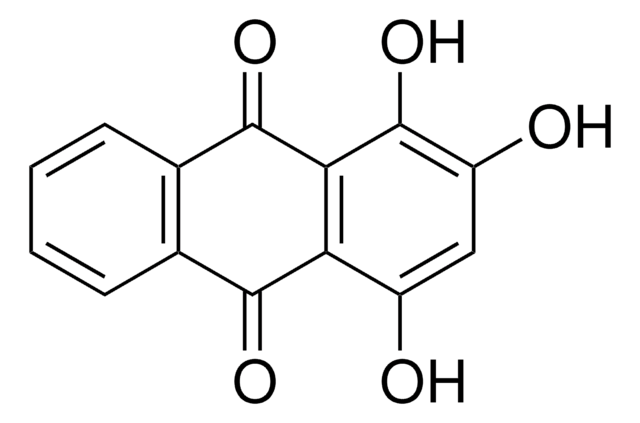S4503
DL-Serine hydroxamate
≥97% (TLC), suitable for ligand binding assays
Sinonimo/i:
SHX
Autenticatiper visualizzare i prezzi riservati alla tua organizzazione & contrattuali
About This Item
Formula empirica (notazione di Hill):
C3H8N2O3
Numero CAS:
Peso molecolare:
120.11
Numero MDL:
Codice UNSPSC:
12352209
ID PubChem:
NACRES:
NA.26
Prodotti consigliati
Nome del prodotto
DL-Serine hydroxamate, seryl-tRNA synthetase inhibitor
Saggio
≥97% (TLC)
Stato
powder
tecniche
ligand binding assay: suitable
Colore
white to off-white
applicazioni
cell analysis
Temperatura di conservazione
−20°C
Stringa SMILE
NC(CO)C(=O)NO
InChI
1S/C3H8N2O3/c4-2(1-6)3(7)5-8/h2,6,8H,1,4H2,(H,5,7)
LELJBJGDDGUFRP-UHFFFAOYSA-N
Categorie correlate
Applicazioni
Serine has been used as an inhibitor of seryl-tRNA synthetase. DL-Serine hydroxamate is used to induce metabolic synthesis of guanosine 3′-diphosphate 5′-diphosphate (ppGpp) in E. coli by amino acid starvation. It is also used to synchronize cell cycle in E. coli cultures by inhibition of tRNA charging.
Azioni biochim/fisiol
Serine is involved in the one-carbon unit metabolism. It is associated with the biosynthesis of cysteine, ceramide, phosphatidylserine, purine and pyrimidine. In bacteria, it participates in tryptophan synthesis. Gluconeogenesis, one of the important biochemical processes, involves serine, particularly in ruminants. Protein phosphorylation is one such event that utilizes serine. Glycine, a metabolic product of serine, serves as an antioxidant and a neurotransmitter. D-serine is known to activate the N-methyl-D-aspartate (NMDA) receptors of the brain. Serine hydroxamate, a structural analogue of serine prevents seryl-tRNA (transfer ribonucleic acid) charging and thereby decreases phospholipid and nucleic acid synthesis in Escherichia coli.
Codice della classe di stoccaggio
11 - Combustible Solids
Classe di pericolosità dell'acqua (WGK)
WGK 3
Punto d’infiammabilità (°F)
Not applicable
Punto d’infiammabilità (°C)
Not applicable
Dispositivi di protezione individuale
Eyeshields, Gloves, type N95 (US)
Scegli una delle versioni più recenti:
Possiedi già questo prodotto?
I documenti relativi ai prodotti acquistati recentemente sono disponibili nell’Archivio dei documenti.
Olaf Brockmann-Gretza et al.
BMC genomics, 7, 230-230 (2006-09-12)
The stringent response is the initial reaction of microorganisms to nutritional stress. During stringent response the small nucleotides (p)ppGpp act as global regulators and reprogram bacterial transcription. In this work, the genetic network controlled by the stringent response was characterized
Dao Nguyen et al.
Science (New York, N.Y.), 334(6058), 982-986 (2011-11-19)
Bacteria become highly tolerant to antibiotics when nutrients are limited. The inactivity of antibiotic targets caused by starvation-induced growth arrest is thought to be a key mechanism producing tolerance. Here we show that the antibiotic tolerance of nutrient-limited and biofilm
H J Cha et al.
Applied and environmental microbiology, 65(2), 409-414 (1999-01-30)
We constructed and characterized three stress probe plasmids which utilize a green fluorescent protein as a noninvasive reporter in order to elucidate Escherichia coli cellular stress responses in quiescent or resting cells. Cellular stress levels were easily detected by fusing
Yuki Matsumoto et al.
BMC genomics, 14, 808-808 (2013-11-21)
Cell growth rate reflects an organism's physiological state and largely relies on the ability of gene expression to respond to the environment. The relationship between cellular growth rate and gene expression remains unknown. Growth rate-coordinated changes in gene expression were
B Belitsky et al.
The Journal of biological chemistry, 257(9), 4677-4679 (1982-05-10)
Lack of three different amino acids or treatment with the analogue DL-serine hydroxamate does not induce the accumulation of ppGpp and pppGpp, the 3'-pyrophosphates of GDP and GTP, respectively, in Rhizobium meliloti strain 41. Surprisingly, RNA accumulation is controlled under
Il team dei nostri ricercatori vanta grande esperienza in tutte le aree della ricerca quali Life Science, scienza dei materiali, sintesi chimica, cromatografia, discipline analitiche, ecc..
Contatta l'Assistenza Tecnica.